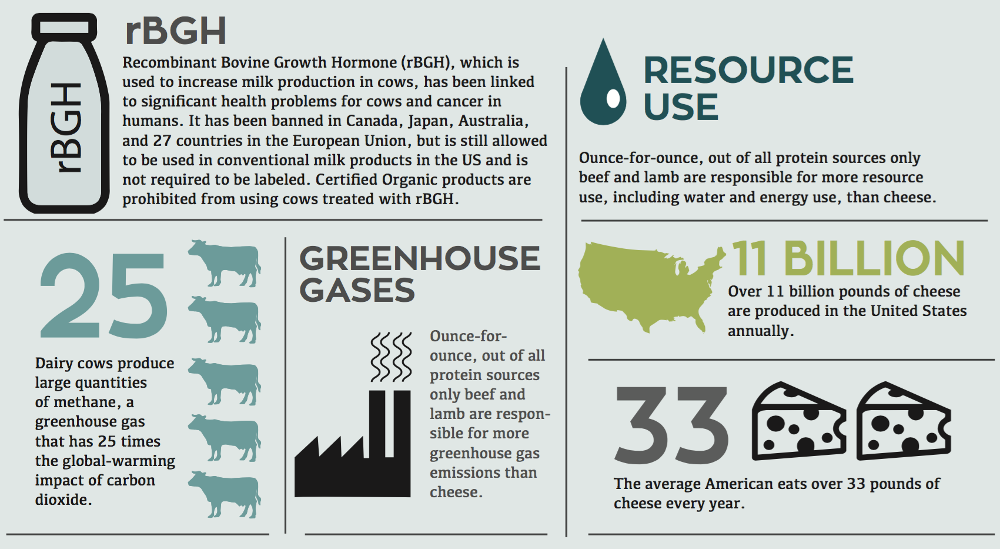
rBGH
Recombinant Bovine Growth Hormone (rBGH), which is used to increase milk production in cows, has been linked to significant health problems for cows and cancer in humans. It has been banned in Canada, Japan, Australia, and 27 countries in the European Union, but is still allowed to be used in conventional milk products in the US and is not required to be labeled. Certified Organic products are prohibited from using cows treated with rBGH.
25
Dairy cows produce large quantities of methane, a greenhouse gas that has 25 times the global-warming impact of carbon dioxide.
GREENHOUSE GASES
Ounce-for-ounce, out of all protein sources only beef and lamb are responsible for more greenhouse gas emissions than cheese.
RESOURCE USE
Ounce-for-ounce, out of all protein sources only beef and lamb are responsible for more resource use, including water and energy use, than cheese.
11 BILLION
Over 11 billion pounds of cheese are produced in the United States annually.
33
The average American eats over 33 pounds of cheese every year.
The Takeaway
Taking a closer look at the conventional cheese industry may be disheartening, but it might also be unrealistic for some to think about giving up cheese all together. So what can conscious cheese lovers do? As with many products, consider purchasing cheese from local cheese producers who use sustainable, organic, and humane methods. Certified Organic cheeses are made in more sustainable ways, including more humane conditions for the animals and reduced harmful effects on the environment.





